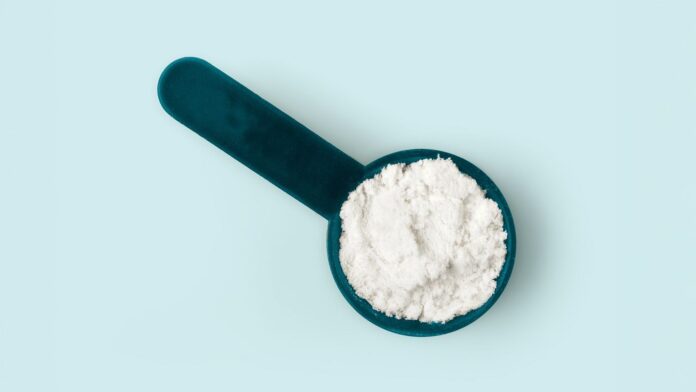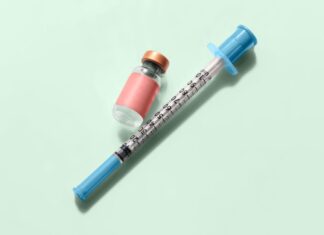Creatine supplements are incredibly popular among athletes looking to boost performance, but they’re gaining traction for potential benefits beyond the gym, including cognitive support and mental health improvements. While generally safe for most healthy adults when used as directed, it’s crucial to understand both the upsides and potential downsides of creatine before adding it to your routine.
Creatine: A Performance-Enhancing Powerhouse
Creatine is naturally produced by your body and found in foods like red meat and seafood. It plays a vital role in providing energy for high-intensity activities, essentially refueling the system that powers muscle contractions. This makes creatine particularly beneficial for anyone involved in resistance training or sports requiring explosive bursts of power.
Here’s how creatine can benefit you:
- Increased Muscle Mass and Strength: Creatine helps regenerate adenosine triphosphate (ATP), your body’s primary energy source for short, intense efforts. Over time, this leads to significant gains in lean muscle mass and strength, enhancing your ability to push harder during workouts.
- Faster Recovery: By reducing muscle cell damage, inflammation, and soreness after intense exercise, creatine can shorten recovery times between training sessions. This allows you to train more frequently and consistently, further driving progress.
- Improved Brain Function: Your brain relies heavily on ATP for optimal function, and creatine supports this energy demand. Studies suggest that creatine supplementation can improve various cognitive aspects like memory, processing speed, and attention, particularly during demanding mental tasks. There’s even promising research suggesting it might help with cognitive decline associated with Alzheimer’s disease, although larger studies are needed to confirm these findings.
- Mood Enhancement: Some research indicates creatine may be helpful in managing symptoms of depression when combined with standard antidepressant medication. However, more research is necessary to solidify this link and understand how it works.
Potential Risks and Side Effects: Weighing the Downsides
While creatine generally enjoys a good safety profile, some potential risks and side effects warrant consideration:
- Dehydration: Creatine can draw water into muscle cells, which may lead to dehydration if you don’t increase your fluid intake accordingly. Be sure to drink plenty of water throughout the day, especially when supplementing with creatine.
- Gastrointestinal Discomfort: Some individuals experience digestive issues like diarrhea or stomach cramps when taking creatine, especially at higher doses. Starting with a lower dose and gradually increasing it can help minimize these effects.
- Weight Gain: The increased water retention associated with creatine can result in short-term weight gain, but this is typically due to water weight rather than fat gain. Muscle mass gains will contribute to long-term, healthy weight management.
Creatine may not be suitable for everyone. It’s crucial to avoid creatine if you:
- Have pre-existing kidney conditions: Creatine can put extra stress on your kidneys, so it’s best avoided in individuals with existing kidney problems.
- Are pregnant or breastfeeding: There’s limited research on the safety of creatine during pregnancy and lactation.
- Are under 18 years old: Long-term effects of creatine use in adolescents are not fully understood.
Choosing, Storing, and Dosing Creatine: Best Practices
Selecting a Quality Product: Look for creatine monohydrate supplements from reputable brands that have undergone third-party testing for purity and quality (USP, NSF, or ConsumerLab certified). Avoid products with unnecessary additives or fillers.
Proper Storage: Store creatine in a cool, dry place away from direct sunlight and moisture to prevent degradation. Keep it tightly sealed when not in use and consume any mixed beverages promptly.
Finding Your Dosage: The standard daily dose is 3 to 5 grams of creatine monohydrate, typically split into one or two servings throughout the day. It can take a few weeks to fully saturate your muscle creatine stores and notice noticeable benefits.
Consulting Your Doctor: Always talk to your doctor before starting any new supplement, including creatine, especially if you have underlying health conditions, are taking medication, or are pregnant or breastfeeding.
The Bottom Line: Creatine Can Be a Helpful Tool
Creatine supplements can be a valuable addition to an exercise regimen for those looking to enhance performance, accelerate muscle growth, and potentially improve cognitive function. However, it’s essential to use them responsibly by choosing quality products, following recommended dosages, staying hydrated, and being aware of potential side effects. Consulting with your healthcare provider ensures you make informed decisions about incorporating creatine into your wellness routine.



































